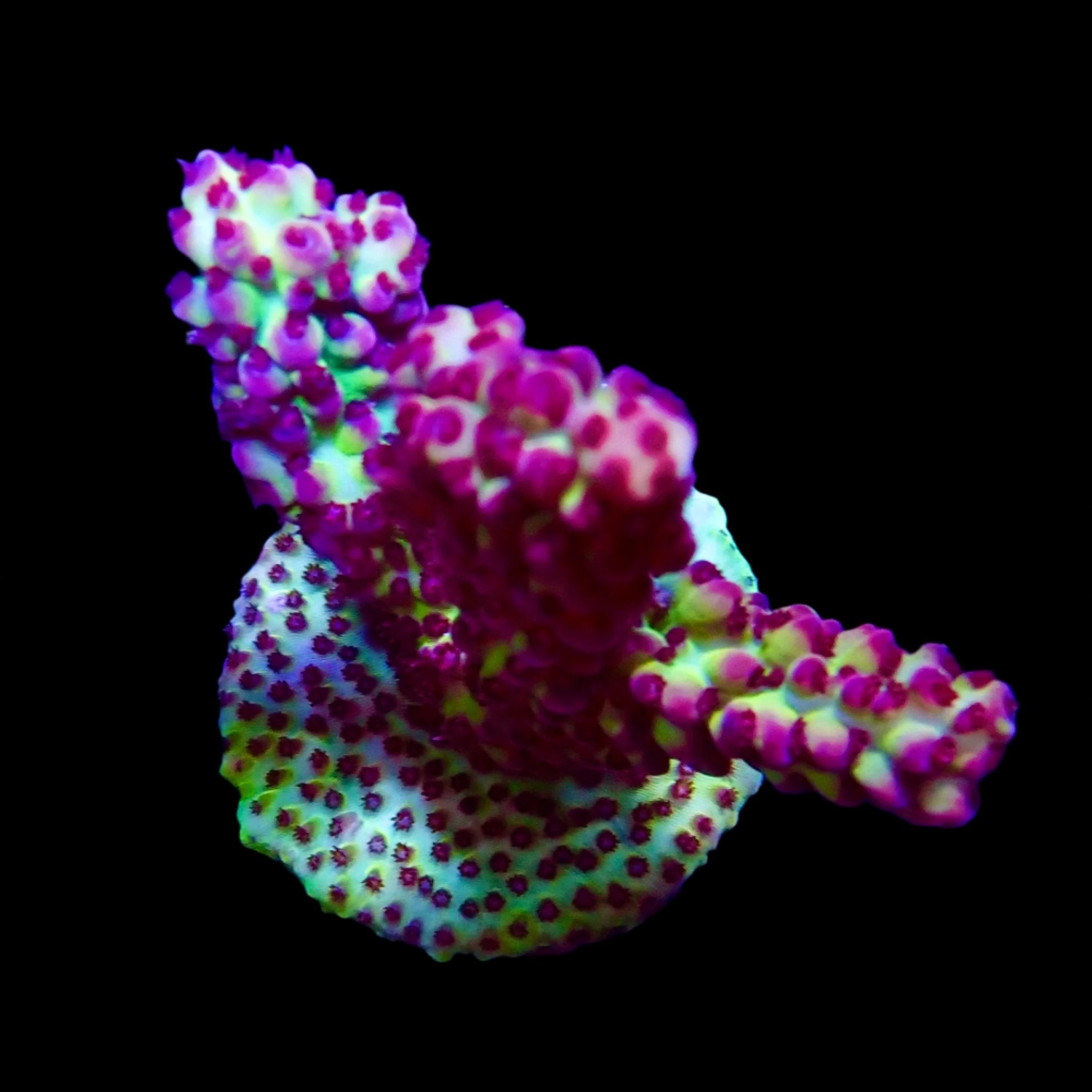
Coraux Indo Au
Acropora Strawberry Shortcake WYSIWYG
Available
Acropora are iconic SPS (Small Polyp Stony) hard corals in the reef aquarium world. Their complex structure and vibrant colors (blue, green, pink, purple, etc.) make them jewels for any reef aquarium. They require special attention and stable conditions, but their beauty and rapid growth more than reward these efforts.
Maintenance guide:
1. Aquarium size and configuration:
• Minimum volume: 100 liters to ensure stability of the parameters.
• Lighting: Very intense, with PAR (Photosynthetically Active Radiation) levels between 250 and 500 PAR .
• Placement:
• High in the aquarium for optimal lighting.
• Make sure that colonies do not touch each other , as Acropora can be aggressive towards their fellow corals and other corals.
• Current: Strong and irregular, mimicking the flows of natural reefs. Use variable flow pumps to avoid stagnant areas.
2. Water parameters:
• Temperature: 24–26°C.
• Salinity: 1.025–1.026 (specific gravity).
• pH: 7.8–8.4.
• Calcium: 400–450 ppm.
• Alkalinity (KH): 7–10 dKH.
• Magnesium: 1250–1450 ppm.
• Nitrates: Less than 5 ppm.
• Phosphates: Less than 0.03 ppm.
3. Feed:
Although they rely primarily on their zooxanthellae for photosynthesis, supplemental feeding promotes their growth and coloration:
• Powdered food for SPS corals.
• Enriched phytoplankton and plankton.
• Amino acids specially formulated for corals.
4. Compatibility and cohabitation:
• Reef friendly: Yes, but allow sufficient space between colonies and other corals (minimum 5 cm).
• Ideal Fish: Peaceful reef species such as gobies, clownfish, and non-aggressive .
5. Maintenance and growth:
• Rapid growth under stable conditions.
• Perform regular water changes (10% per week) to maintain optimum quality.
• Regularly dose calcium, magnesium and alkalinity to support their calcareous skeleton.
6. Signs of good health:
• Polyps well extended and active.
• Intense colors and absence of white or necrotic areas.
7. Special precautions:
• Spacing: Do not allow colonies or neighboring corals to touch each other, as Acropora can release aggressive toxins.
• Sensitivity: These corals are very sensitive to variations in water parameters. Long-term stability is essential.
• Pests: Watch for pests such as nudibranchs or flatworms, and act quickly if an infestation occurs.
 Telephone: 1 450-669-9256
Telephone: 1 450-669-9256 Email: sales@reefsolution.com
Email: sales@reefsolution.com




